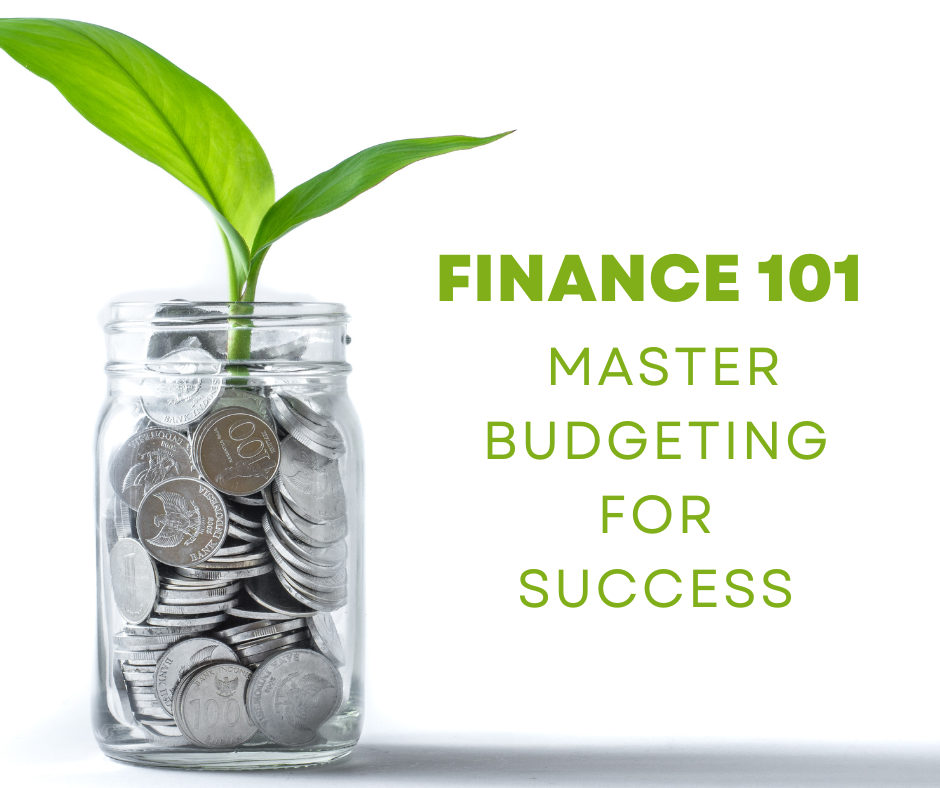Financial stability and security are not elusive dreams but attainable goals within your reach. The key to achieving them lies in mastering the fundamentals of personal finance, including budgeting and saving. In this guide, we’ll delve into the essential principles and practical tips to help you take control of your finances and build a solid foundation for a prosperous future.
Understanding the Basics
1. Create a Budget
Budgeting is the cornerstone of financial responsibility. Start by tracking your income and expenses. Categorize your spending to identify areas where you can cut back and allocate funds toward your financial goals.
2. Set Clear Financial Goals
Define your short-term and long-term financial goals. Whether it’s paying off debt, buying a home, or saving for retirement, having clear objectives will motivate you to manage your money more effectively.
3. Emergency Fund
Establishing an emergency fund is crucial. Aim to save at least three to six months’ worth of living expenses to cover unexpected costs like medical bills or car repairs.
Budgeting Tips
4. Live Within Your Means
Avoid the trap of overspending. Spend less than you earn to ensure financial stability. Prioritize needs over wants and practice mindful spending.
5. Create Categories
Organize your budget into categories such as housing, groceries, transportation, and entertainment. This breakdown makes it easier to monitor your expenses and identify areas for improvement.
6. Use Envelopes or Budgeting Apps
You can manage your budget through physical envelopes with allocated cash or modern budgeting apps that track your spending and categorize transactions automatically.
Saving Strategies
7. Pay Yourself First
Treat your savings as a non-negotiable monthly expense. Set up automatic transfers to your savings account, ensuring you save a portion of your income before spending it.
8. Take Advantage of Employer Benefits
If your employer offers retirement plans like a 401(k), take advantage of them. Contribute enough to maximize any employer match, as this is essentially free money.
9. Reduce Unnecessary Expenses
Identify areas where you can cut costs. Consider canceling unused subscriptions, dining out less frequently, or finding more affordable alternatives.
10. Invest Wisely
Once you’ve built an emergency fund and paid off high-interest debts, consider investing to grow your wealth. Diversify your investments, and consider consulting a financial advisor for guidance.
Dealing with Debt
11. Prioritize High-Interest Debt
Focus on paying off high-interest debt first, such as credit card balances. The interest on these debts can quickly accumulate and hinder your financial progress.
12. Use Debt Strategically
Not all debt is bad. Mortgage and student loans, for example, can be considered investments in your future. Manage them wisely, and aim to pay off high-interest consumer debt.
Maintaining Financial Health
13. Regularly Review Your Finances
Set aside time each month to review your budget, track your progress toward financial goals, and make adjustments as needed.
14. Build Financial Literacy
Continue educating yourself about personal finance. Books, podcasts, and online resources can provide valuable insights into managing your money effectively.
15. Seek Professional Advice
If you’re facing complex financial situations, consider consulting a certified financial planner or advisor to help you navigate your unique circumstances.
Conclusion: Empowering Your Financial Future
Budgeting and saving are not restrictions but empowering tools that give you control over your financial future. By establishing good financial habits and setting achievable goals, you can pave the way for financial stability, security, and the realization of your dreams. Start today, and take the first steps on your journey to personal financial success.
